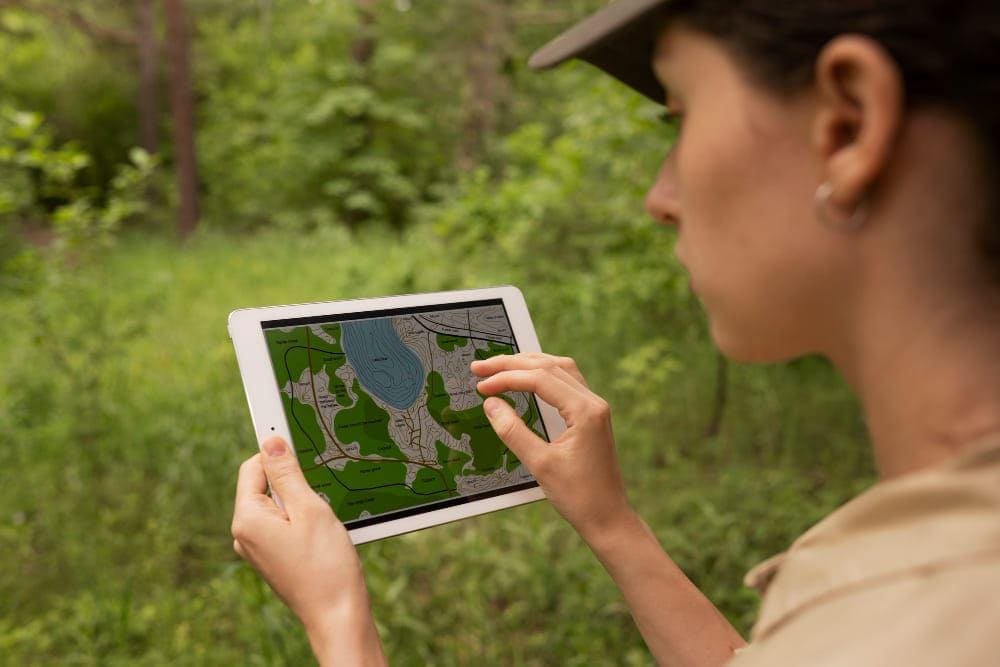Hope Rose
21/05/2025Thank you for your valuable feedback! We believe that accessibility is key to unlocking spatial data's full potential for sustainable development. Your insights reinforce our commitment.
Leveraging Data for Sustainable City Development Cities globally face unprecedented challenges, from rapid urbanization to the...
Precision in Green Initiatives: Leveraging Data In an era defined by increasing environmental consciousness, understanding and mitigating...

Global challenges like climate change, resource depletion, and rapid urbanization demand innovative solutions. Traditional approaches often lack the precision and comprehensive understanding needed for effective intervention. This is where the power of spatial data emerges as a transformative force, offering a new lens through which to view and address complex environmental and societal issues. Its ability to map, analyze, and visualize geographically referenced information is becoming indispensable for progress.
Spatial data, encompassing everything from satellite imagery and GPS coordinates to sensor networks, provides a rich tapestry of information. When properly harnessed, it allows decision-makers to identify patterns, predict trends, and pinpoint areas of critical need with unprecedented accuracy. This analytical depth is crucial for crafting targeted strategies that lead to tangible, positive outcomes for communities and ecosystems alike.
The integration of spatial data into sustainable development initiatives is no longer a niche concept but a fundamental requirement. From monitoring deforestation in real-time to optimizing urban planning for reduced carbon footprints, its applications are vast. Ensuring broad accessibility to these powerful tools is critical, which is why robust Browser & Platform Compatibility is a core consideration for any effective spatial data solution.
Leveraging spatial intelligence enables organizations and governments to move beyond reactive measures towards proactive, evidence-based planning. This shift is vital for building resilient infrastructure, managing natural resources efficiently, and fostering equitable growth. The insights derived from spatial analysis empower stakeholders to make informed choices that consider the unique geographical context of each challenge.
For a company like EcoVision Cloud, facilitating access to and analysis of this data is at the heart of its mission. We understand that the true potential of spatial information is realized when it is easily accessible and interoperable across various systems. Our commitment ensures that users, regardless of their technical environment, can effectively utilize our tools to drive sustainable outcomes.
Urban Development: Supports efficient infrastructure planning and green space integration. Benefits include better resource use; challenges involve integrating diverse municipal datasets and addressing privacy concerns.
Environmental Stewardship: Crucial for monitoring deforestation, water quality, and biodiversity. Pros offer early warning for ecological threats; limitations include continuous data streams and specialized interpretation skills.
Disaster Preparedness: Aids in mapping vulnerable areas, planning evacuation routes, and damage assessment. Pros provide rapid response capabilities; limitations include real-time data collection during crises and ensuring data accuracy.
Experts agree spatial data's capacity to reveal complex interdependencies is its greatest strength. Dr. Anya Sharma, a geoinformatics specialist, emphasizes that "seeing the 'where' alongside the 'what' transforms our understanding of problems, allowing for more holistic solutions." This highlights the shift from siloed analysis to an interconnected approach, crucial for sustainable development.
Widespread adoption isn't without challenges. Some argue spatial datasets overwhelm organizations lacking specialized technical expertise. A debate exists about balancing powerful, feature-rich platforms with user-friendly interfaces for non-GIS professionals. Simplifying data ingestion and analysis remains a key industry focus.
Another point of contention revolves around data standardization and interoperability. While many platforms offer robust capabilities, the lack of universal standards for data formats can hinder seamless integration across different systems. This fragmentation impedes collaborative efforts, essential for addressing global challenges. Overcoming these barriers requires concerted efforts.
Proponents counter that benefits far outweigh hurdles, especially with advancements in cloud-based spatial analysis and AI-driven insights. They argue platforms like those from EcoVision Cloud are democratizing access, abstracting complexity. The increasing sophistication of analytical models means even raw spatial data can yield profound insights with minimal manual intervention.
Ethical implications of spatial data use also warrant careful consideration. Concerns about privacy, surveillance, and potential biases in data collection or processing are frequently raised. Balancing leveraging data for public good and protecting individual rights requires robust ethical frameworks and transparent governance. This ongoing dialogue shapes responsible technology deployment.
The journey towards sustainable development is undeniably complex, but spatial data offers a powerful compass. Providing unparalleled insights into our world's intricate systems, it empowers decision-makers to craft more effective, data-driven strategies for a resilient future. Companies like EcoVision Cloud are committed to making these tools accessible.
Embracing spatial data solutions is not merely a technological upgrade; it represents a fundamental shift. As technology evolves, spatial intelligence's potential to drive transformative change will only grow, paving the way for a more equitable future.

Thank you for your valuable feedback! We believe that accessibility is key to unlocking spatial data's full potential for sustainable development. Your insights reinforce our commitment.

While the benefits are clear, the article mentions challenges like data standardization. Could EcoVision Cloud elaborate on how it addresses these interoperability issues within its solutions?

That's an excellent question. At EcoVision Cloud, we actively work towards supporting various industry-standard data formats and APIs to enhance interoperability. We also invest in robust data ingestion pipelines designed to handle diverse datasets, aiming to minimize integration hurdles for our users.
Riley Santos
25/01/2025This article clearly articulates the importance of spatial data. It's great to see a focus on practical applications and the challenges involved. The emphasis on Browser & Platform Compatibility is particularly relevant for broader adoption.